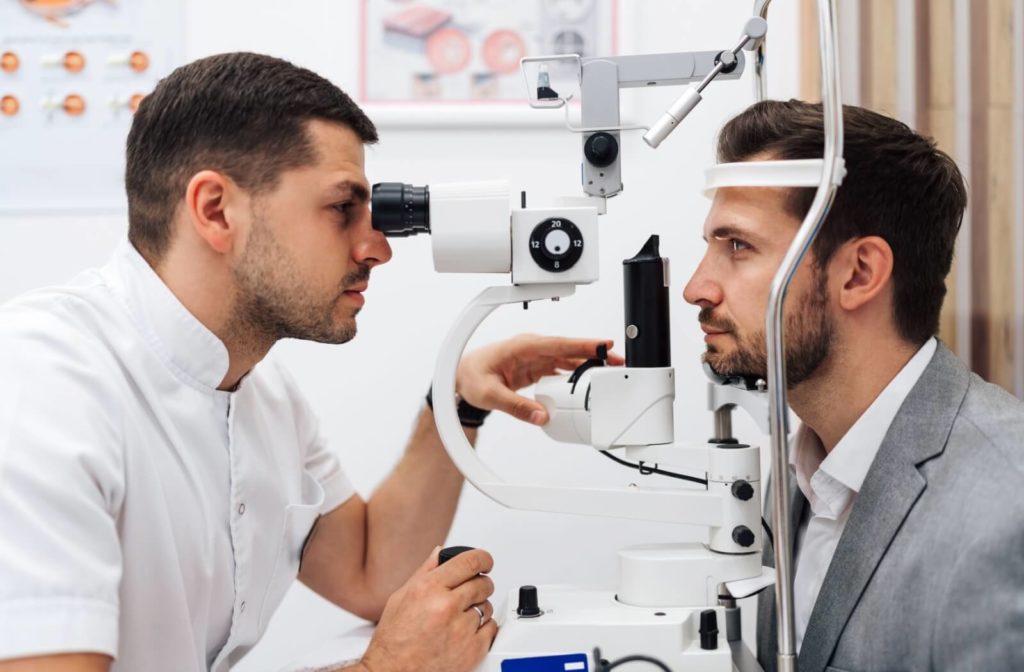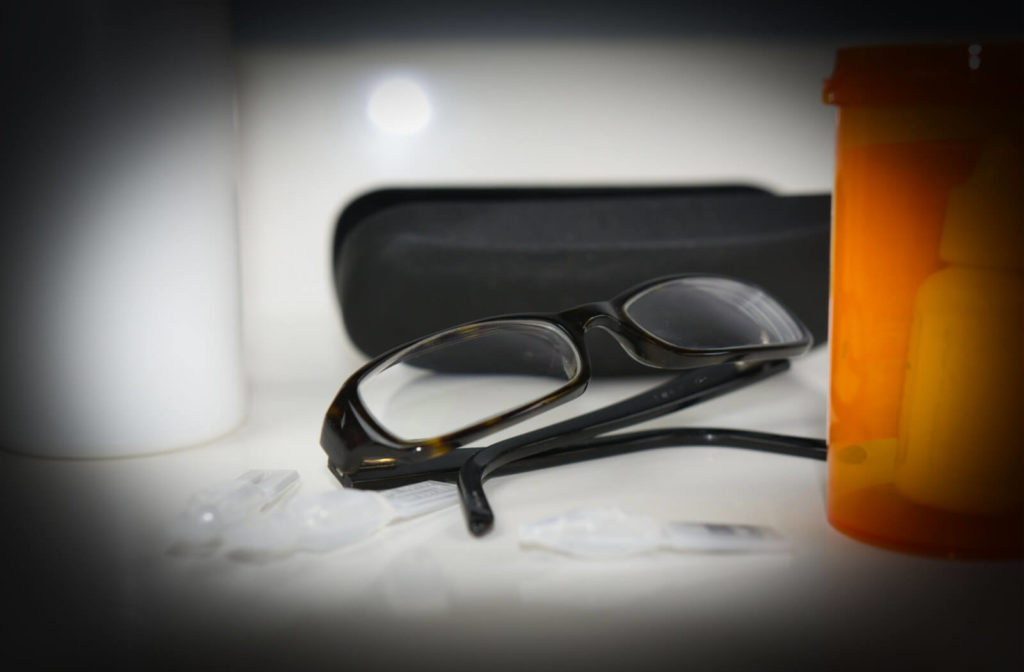Glaucoma is an eye disease that is often referred to as the “silent thief of sight” because it can develop with little to no symptoms, leading to it being a leading cause of blindness worldwide. That’s why prevention of this condition often involves comprehensive eye exams.
There is no cure for glaucoma, but your eye doctor can provide tailored treatment advice that may slow or stop its development. Surgery may be required to prevent further and immediate vision loss.
Understanding Glaucoma
Glaucoma is an eye disease that can sneak up on people. It often doesn’t result in symptoms until it has already caused significant damage.
There are different types of glaucoma, each with its own properties, but the result, if it’s left untreated, is typically vision loss due to damage of the optic nerve.
Understanding the types of glaucoma is crucial, as they each require different approaches to treatment and management. Identifying which type of glaucoma you have helps your optometrist identify the best course of treatment.
Open-Angle Glaucoma
This is the most common form, accounting for around 90% of cases. With open-angle glaucoma, the drainage canals of your eyes become less efficient, causing pressure to build up inside the eye. This pressure damages the optic nerve, eventually leading to vision loss.
Angle-Closure Glaucoma
Angle-closure glaucoma is less common but often requires immediate medical treatment to prevent vision loss. This form of glaucoma is a sudden blockage that leads to a rapid increase in eye pressure. Symptoms appear suddenly and may include severe eye pain, headaches, nausea, and blurred vision.
Glaucoma Causes & Risk Factors
Several factors can contribute to glaucoma’s development.
High eye pressure is a significant risk factor for glaucoma. Just like high blood pressure can harm the heart, increased eye pressure can damage the optic nerve. But not everyone with high eye pressure will develop glaucoma, and vice versa.
Genetics also play a role. If someone in your family has glaucoma, your risk increases. That’s why knowing your family’s eye health history is essential. It provides your eye doctor with invaluable information to direct their examination.
Age is another factor. The risk of developing glaucoma increases as you age. Like many other health issues, age can make your eyes more vulnerable to this condition.
Glaucoma Symptoms & Diagnosis
One of the challenges with glaucoma is that it often shows no warning signs until it’s advanced enough to damage vision.
Regular comprehensive eye exams are vital in diagnosing glaucoma in its early stages. Eye doctors use various tests and equipment to diagnose glaucoma. These tests measure eye pressure, examine the optic nerve, and assess your visual field to help ensure that nothing goes unnoticed.

Potential Glaucoma Treatment Options
The good news is that glaucoma can be managed effectively with the right treatment plan. Various options are available, each tailored to individual needs.
Medicated eye drops are often the first line of defence. These drops help reduce eye pressure by improving fluid drainage or decreasing fluid production. Consistent use of these drops can slow down the progression of glaucoma.
Your eye doctor may recommend laser or traditional surgery procedures in some cases. Laser procedures can improve fluid drainage, reducing eye pressure. They are minimally invasive procedures that can enhance the effectiveness of other treatments.
Traditional surgery is another option. It creates a new drainage pathway or removes part of the eye’s tissue to lower eye pressure. While more invasive, it can effectively manage severe glaucoma cases.
Lifestyle Management
Living with glaucoma requires a proactive approach to maintaining eye health. Simple lifestyle changes can make a significant impact.
Diet & Nutrition
Diet plays a role in managing glaucoma. Consuming foods rich in antioxidants, like leafy greens and colourful fruits, can promote eye health. Omega-3 fatty acids, found in fish, may also support eye function.
Physical Activity
Regular exercise is beneficial too. Activities like walking or swimming that get your heart pumping can help lower eye pressure. But always consult your doctor before starting any new exercise routine.
Stress Management
Managing stress is equally important. High stress levels can negatively impact overall health, including your eyes. Practices like yoga, meditation, or spending time outdoors can help you relax and improve your well-being.
Importance of Regular Eye Exams
Regular eye exams are the backbone of maintaining eye health, especially when it comes to glaucoma. These exams serve as a safety net, catching potential issues before they become major problems.
Early detection of glaucoma is vital, as it allows for timely intervention and prevents further vision loss because vision cannot be recovered once lost.
Eye exams also provide opportunities to discuss other concerns with your eye doctor. Whether you’re experiencing changes in your vision or have questions about treatments, these appointments are your chance to gain insights and reassurance.
Book an Eye Exam Today
Glaucoma can be a formidable opponent in eye health. However, armed with knowledge and proactive measures, you can safeguard your vision for years by including your eye doctor in your journey.
Call our team at Calgary Optometry Centre today to book an appointment. One of our professional eye doctors can examine your eyes, address your concerns, and offer tailored advice on keeping your vision strong and clear.




